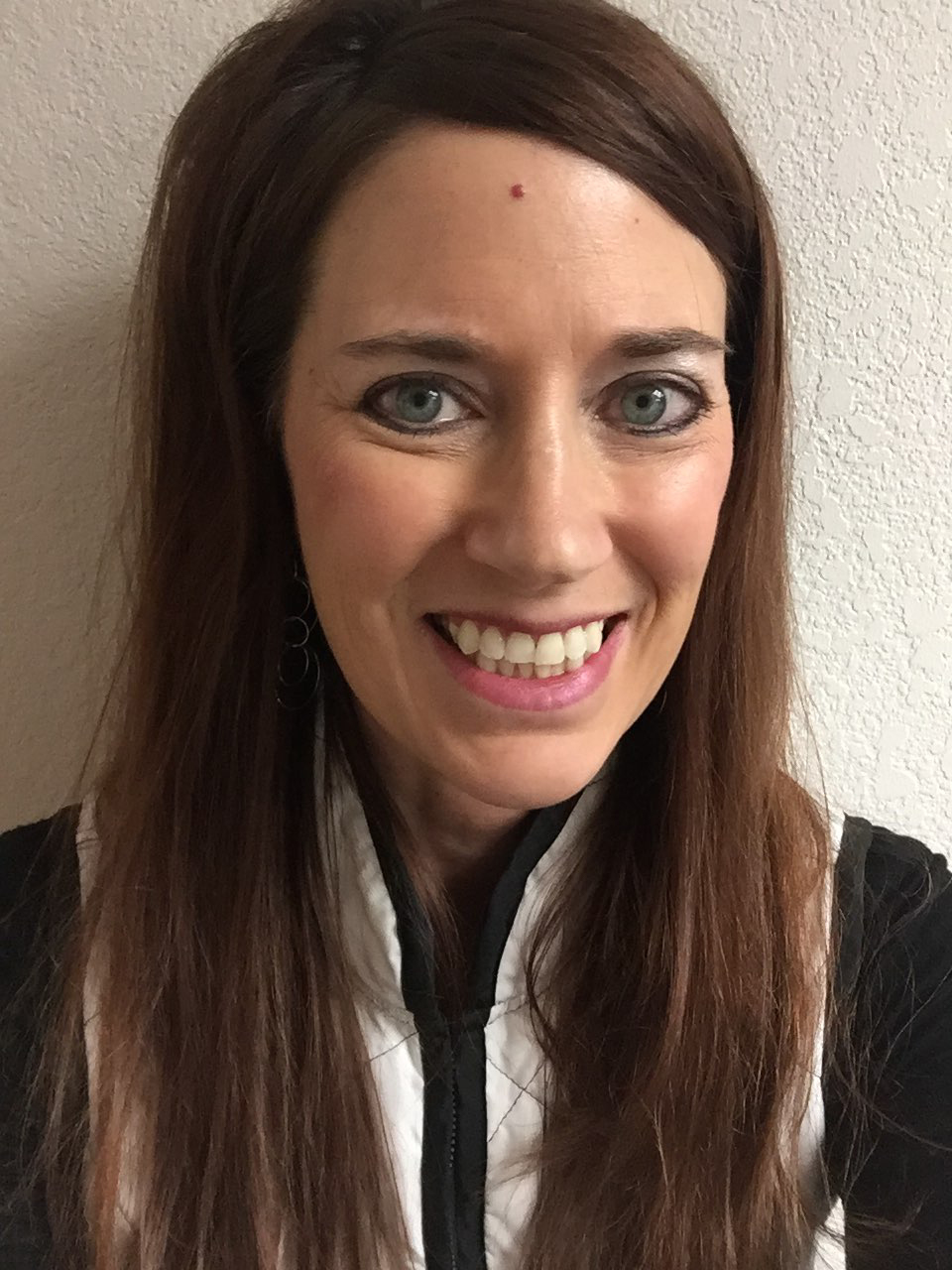Normalizing A Hyper-Responsive Gag Reflex In Children #e257
Presenter: Jennifer Dahms, MS, CCC-SLP, BCS-S
Learn treatment techniques for a hyper-responsive gag reflex in children.
– K.B., prior course participant
Read more comments about this course!
A hyper-responsive gag reflex can be very limiting to a child’s overall well-being. It can interfere with many different aspects of life. A hyper-responsive gag reflex with food intake can negatively impact the full feeding experience and requires specific techniques for a smooth progression with oral intake.
When treating a child who has a hyper-responsive gag reflex, SLPs need to be aware of all the activities and techniques that can be used and how to apply them effectively. This course will overview gag reflex descriptions, discuss research on hyper-responsive gag reflexes, and provide therapy techniques, including tools to desensitize the gag reflex.
Offered for 0.1 ASHA CEUs – 1 Contact Hour.
Course Overview – Run Time: 1:00:01
- Introduction
- Gag Reflex Descriptions
- Research on Hyper-Responsive Gag Reflexes
- Treatment Techniques for a Hyper-Responsive Gag Reflex
- Treatment Discussion on a Hyper-Responsive Gag Reflex with Food
– H.S., prior course participant
Read more comments about this course!
The content of this online CE course does not focus exclusively on any specific proprietary product or service. Presenter financial and non-financial disclosures may be found in the Presenter & Disclosures area.
Video PowerPoint presentation with author narration & downloadable handout. Stop and re-start the course at any point. Learners retain access to course content after completion for ongoing reference and review.
Reviews
"Signs of gag and hierarchy were beneficial to discuss. The course was short and concise." K.M. (Jul. 2024)
"Techniques for food introduction were helpful. I liked the case histories." S.D. (Jul. 2024)
"All of the information was beneficial, and I would like more courses like this one. I enjoyed the length of the course, and the information provided was so helpful." W.R. (Jun. 2024)
"Strategies I can use in my sessions, and the case studies were beneficial. Easy to access, affordable pricing, great information." A.T. (Jun. 2024)
"The moment where there was a notation of how to introduce appropriate foods. The presenter was easy to listen to and explained things well." J.T. (May. 2024)
"Ideas for reducing hyperresponsiveness without food were beneficial. The course was short and easy to absorb." K.G. (May. 2024)
"Definitely starting with toys/objects that are familiar to the child. The terms positive and negative tilt will be great terms to use with families to describe a child's movement toward or away from a stimuli. I liked that all the information was clearly presented and was thoroughly explained." K.H. (May. 2024)
"The discussion of specific therapeutic interventions and how to appropriately progress in a sequential, safe manner was beneficial. I enjoyed being able to take the course on demand on my own time." M.P. (May. 2024)
"General background information was helpful. Easy to follow, well organized." K.B. (Apr. 2024)
"Discussing more on feeding was helpful. The course was short and informative." N.L. (Mar. 2024)
"It was helpful talking through slowing down when a child shows an adverse response to a food/object. The course confirmed that what I have been doing is on track for my patient." K.P. (Mar. 2024)
"The course was well structured and to the point." A.V. (Feb. 2024)
"The case studies were helpful, and the course was easy to follow." J.O. (Feb. 2024)
"The entire class was beneficial." K.P. (Jan. 2024)
"The hierarchy of exercises and where to start with therapy was beneficial. Good examples." E.B. (Jan. 2024)
"I really enjoyed how the presenter discussed where to start and how to gradually increase the stimulation to decrease the hyper-responsive gag reflex. I enjoyed the case studies." J.P. (Dec. 2023)
"Distinguishing hyper-responsive gag and hypersensitive (response), measuring this, and using it in my goal writing was beneficial. I liked the application of theory in case studies." K.K. (Dec. 2023)
"I work with young clients with hyperresponsive gag reflexes. All of this information will be beneficial, especially when explaining things to parents. The course was short but rich with learning content." A.R. (Nov. 2023)
"The entire topic is so important. I liked the case studies and strategies." C.S. (Nov. 2023)
"This course was easy to follow. It was helpful to discuss kids with hyper-responsive gag." M.C. (Nov. 2023)
"The therapeutic techniques were beneficial. I liked the case studies." A.I. (Nov. 2023)
"Clear, easy tips. I liked the case studies." N.W. (Nov. 2023)
"I liked the discussion of the hierarchy of treatment approaches." A.M. (Oct. 2023)
"This course was brief, succinct, and covered a lot of material." M.M. (Aug. 2023)
"Hyperresponsiveness and trust of the therapist, caregiver, and activity were helpful topics. The case studies included examples of appropriate activities to target in session when hyperresponsiveness is observed." C.S. (Aug. 2023)
"I liked the practicality of implementation, real-world theories, and steps that I can use immediately in therapy." K.W. (Aug. 2023)
"Learning positive and negative reactions to look for in seeing the receptiveness of a child to the activity as well as the different elements of speed, pressure, etc. that will help in progressing therapy." K.W. (Aug. 2023)
"Well organized and easy to follow course. I liked the techniques on how to normalize a hyper-responsive gag." E.V. (Jul. 2023)
"This course was a great length with a lot of useful information. It recognizes the physiological signs of intolerance." J.S. (Jul. 2023)
"The types of activities we can use for a hyper-responsive gag reflex were beneficial. The case studies helped me think about what steps I would take if working with these children." M.R. (Jul. 2023)
"Loved the specific examples of hyper gag reflex. Lots of examples." C.S. (Jul. 2023)
"I liked the explanation of hypersensitivity vs normalizing." C.G. (Jul. 2023)
"Learning ways to approach slowly and indirectly to build trust were beneficial. This course was simple, easy to follow." J.D. (Jul. 2023)
"Really liked all the information. Great info. Great for new therapists to learn." R.V. (Jul. 2023)
"Oral Care as a tool for sensory normalization and the need to target the hyperresponsive gag reflex in order to advance the diet were beneficial topics. I also loved the focus on social interactions, as this can be so motivating to the child." D.L. (Jun. 2023)
"I appreciated the topic of hyper-responsiveness vs. hyper-sensitivity to support the collection of data and documentation. I appreciated the detailed information provided within each section and the course organization." B.K. (Jun. 2023)
"Different than other courses I have taken. Hypersensitivity vs. hyperresponsiveness was beneficial to discuss." E.E. (Jun. 2023)
"Assessment considerations to therapy considerations was a beneficial topic. Self-paced; good speed." R.M. (Jun. 2023)
"The presenter did a good job keeping the topic relevant. Discussing how hyper-responsive gags affect children socially as they develop was beneficial." A.M. (Mar. 2023)
"Love the case examples. Clear, concise information. Lots of examples." W.S. (Feb. 2023)
"Gaining a better understanding of the importance of discussing and considering social interactions with individuals struggling with hyper-responsive gag reflex. Understanding the causes of hyper-responsive gag reflex was very helpful." A.C. (Dec. 2022)
"Quick and informative. I liked how speaker covered sensory needs of the child." E.B. (Dec. 2022)
"I learned how to implement strategies and how it plays into sensory needs." M.H. (Dec. 2022)
"Material was presented in a way which was easily understood." L.R. (Nov. 2022)
"The presenter was clear and easy to understand." E.J. (Nov. 2022)
"Ease of access and self-directed." E.T. (Nov. 2022)
"I liked the case studies. And progression of therapeutic interventions to normalize hyper-responsive gag reflex." S.A. (Oct. 2022)
"The case studies were helpful." L.G. (Sept. 2022)
"This course was organized well." C.Z. (Aug. 2022)
"I found the case histories to be beneficial." H.W. (July 2022)
"The presenter was very knowledgeable." M.M. (July 2022)
"I enjoyed the case studies." M.S. (June 2022)
"The discussion about working with a gag reflex in eating therapy was beneficial." P.H. (June 2022)
"The breakdown of steps to include during treatment was very helpful to my practice." S.M. (June 2022)
"I liked the applicability to my caseload." D.Z. (June 2022)
"Good examples and case study discussion. Learning the importance of working in small steps toward larger goals." H.L. (June 2022)
"Hyper-Responsiveness vs Hyper-Sensitivity. This was a very helpful discussion! Informative, concise, and included several case study questions! Very applicable to clinical practice." K.B. (Mar. 2022)
"Her explanation of hyper responsiveness versus hyper sensitivity was great! I will be using that from now on. Also her therapy ideas were awesome! Great information I hadn't heard before!" E.S. (July 2022)
"I liked the ease of accessing the course. Reinforced some of the sensory techniques I was familiar with." K.W. (Feb. 2022)
"The course was organized very well." R.R. (Dec. 2021)
“I liked the information on how to normalize a hyper-responsive gag reflex. The topic was interesting and relevant, and the presenter was confident, knowledgeable, and engaging.” A.C. (Dec. 2021)
"I appreciated her explanation of a gag response, specifically differentiating between normal vs. excessive as well as what terminology to use when describing a child's response to oral stimulation." D.F. (Dec. 2021)
"Learning to use tools to desensitize the gag reflex was beneficial for my daily practice. I liked the ideas on how to increase textures and new foods." L.M. (Oct. 2021)
"The way one can use familiar toys to aid in acceptance of oral motor tools was beneficial for my daily practice. I liked everything about the course. Very informative and easy to listen to and follow." A.V. (Oct. 2021)
"I didn't know much about a gag reflex at all or why some people gag more easily than others. The most interesting part that I learned was about the sense of taste and how bitter is sensed at the back of the tongue near the throat, and that poisons have a bitter taste. So it is as if we were innately made to safeguard against swallowing unsafe things like poison by reacting to the bitter taste and then gagging or spitting it out. So amazing! My daughters and husband seem to easily gag on certain food textures, but I don't have that problem, so I never really knew why. Now I have a better understanding of why they might have an aversion to certain foods/textures. Very interesting!" A.H. (Sept. 2021)
"This was a good introduction to why the hyperresponsiveness term is important." C.W. (Aug. 2021)
"This course was well organized and well presented. The therapy suggestions of where to start, how fast to proceed, what cues to look for that indicate the child is likely to shut down, and not to focus too much on increasing volume - all very helpful!" H.S. (Aug. 2021)
"I enjoyed the general review on the basics of feeding therapy and important terminology. I loved the case reviews." S.G. (Jul. 2021)
"I learned a lot from this course but particularly her lessons on what terminology to use such as "normalizing" a hyperactive gag and "hyper-responsive" as opposed to "hypersensitive." I will be sure to incorporate these into my daily practices." J.V. (Jul. 2021)
"Taking it slow. Depending on the child you could start with tactile touch on skin or with making small changes in texture are beneficial for my practice." C.S. (Jul. 2021)
“This course provided a systematic approach to determining where to start treatment.” T.B. (Mar. 2021)
“I enjoyed the discussion on how to introduce a variety of textures without sending a patient backward.” H.S. (Jan. 2021)
Course Objectives
- Identify the reasons behind why an abnormal gag reflex develops.
- Identify the importance of treating a hyper-responsive gag reflex.
- List 5 activities for normalizing a hyper-responsive gag reflex.
Presenter & Disclosures

Jennifer Dahms, MS, CCC-SLP, BCS-S, completed her Bachelor of Science and Master of Science degrees in Communication Sciences and Disorders at the University of Wisconsin – Milwaukee. She has worked in two different counties in Wisconsin, providing Birth-to-Three and outpatient therapy services. She moved to Boise, Idaho in 2006 and initially worked for St. Luke’s Idaho Elks Rehabilitation Services for two years. Jennifer then opened her own private practice, Valley Pediatric Feeding LLC, in October 2008. Over the course of her career, she has focused the majority of her continuing education on pediatric feeding disorders. Jennifer earned ASHA’s ACE Award in 2010, 2011, 2013, 2015, and 2017. She initially became Board Certified in Swallowing and Swallowing Disorders in 2011. She is a member of the Dysphagia Research Society and is a SIG 13 member. Jennifer has presented on pediatric feeding disorders at state and regional conferences as well as with several online webinars.
Speaker Disclosures:
Financial — Jennifer Dahms is presenter of online CE courses sponsored by Northern Speech Services; receives royalties.
Nonfinancial — Jennifer Dahms has no relevant nonfinancial relationships to disclose.
Intended Audience / Accreditation

This program is offered for 0.1 ASHA CEUs (Intermediate Level; Professional Area).

Intended Audience
- Speech-Language Pathologists
ASHA CEUs: NSS online courses are registered with ASHA and are offered for ASHA CEUs. The number of ASHA CEUs is noted above. Note that 0.1 ASHA CEU = 1 contact hour = equals 1 CEE.
ASHA CE Registry: During the enrollment process, if you select to receive ASHA credit for this course and if you provide your ASHA number, NSS will automatically submit your CEU information to the ASHA CE Registry after successful course completion (80% on post test). This submission happens once per month, during the first week of the month. For example, if you complete your course on November 7th, NSS will submit all November online course CEUs to ASHA during the first week of December. When ASHA inputs the information into their database, they will mark the course as completed on the last day of the month in which it was completed, so November 30th using this example. The certificate of completion available for you to print immediately, however, will reflect the actual completion date, November 7th in this example. Due to ASHA processing procedures please allow 2-3 weeks, from the submission date, for the course to appear on your ASHA transcript.
ASHA CEUs: Attendees must meet at least one of the following conditions in order to be eligible to earn ASHA CEUs:
- Current ASHA Member.
- ASHA Certificate of Clinical Competence (CCC) Holder.
- Licensed by a state or provincial regulatory agency to practice speech-language pathology (SLP) or audiology.
- Credentialed by a state regulatory agency to practice SLP or audiology.
- Credentialed by a national regulatory agency to practice SLP or audiology.
- Engaged in a Clinical Fellowship under the supervision of an individual with their ASHA CCC.
- Currently enrolled in a master's or doctoral program in SLP or audiology.
If an attendee is not an ASHA member or CCC holder but meets any of the above criteria, they may inform the ASHA CE Registry of their eligibility by visiting this site.
Licensing Boards: Most state licensing boards DO accept CEUs earned online (usually classified as home-study credits). Some state boards do, however, place a limit to the number of credits that can be earned via home study/online courses. For the most current information, we suggest that you contact your licensing board or agency to verify acceptance policies and/or any credit limits related to home-study courses prior to registering for this course.
Additional accrediting agencies by which Northern Speech is an approved CE provider:
- California: NSS is approved as a provider of continuing education by the California Speech-Language Pathology & Audiology Board. Provider #PDP4. Online CEU limits may apply; please contact SLPAHADB for current online CEU acceptance policies.
- Iowa: NSS is approved as a provider of continuing education by the Iowa Board of Speech Pathology and Audiology Examiners. Provider #169.
- Kansas: NSS is approved as a provider of continuing education by the Kansas Department of Health and Environment. Provider #LTS-S0005.
- Florida: NSS is approved as a provider of continuing education by the Florida Speech-Language Pathology and Audiology Board. Provider #SPA-026.
- New Jersey: NSS is approved as a provider of continuing education by the New Jersey Department of Education. Provider #1654.
Frequently Asked Questions
Customer Support: Please phone 888.337.3866 or email info@northernspeech.com.
Course Completion Timeframe:
You have unlimited time to complete our online courses. You may log off and log on as often as you’d like to in order to complete all sections of a course.
However, completion dates are based on Eastern Standard Time. Therefore, if you need your CEUs by a certain date, be sure to complete the course test before 11:59pm EST on that date. For example, if you need CEUs before January 1st, you will need to complete the course test before 11:59pm EST on December 31st.
Content Access:
Access to course materials and content does not expire, even after completing the post test. You may continue to review course material by logging into your NSS account, clicking the My Online Courses tab, and then viewing your desired course.
Certificate of Completion:
On successful completion of the post test (80%), a certificate will be immediately available for download and/or printing. This certificate will include your name, date of completion (based on Eastern Time Zone, USA/Canada), and number of contact hours (CEUs / CEEs). Please note that CEUs are awarded on the date of successful test completion, not the date of course enrollment. Please ensure that you successfully complete the post test prior to any licensure renewal dates.
ASHA CE Registry Submission:
During the enrollment process, if you select to receive ASHA credit for this course and if you provide your ASHA number, NSS will automatically submit your CEU information to the ASHA CE Registry after successful course completion (80% on post test). This submission happens once per month, during the first week of the month. For example, if you complete your course on November 7th, NSS will submit all November online course CEUs to ASHA during the first week of December. When ASHA inputs the information into their database, they will mark the course as completed on the last day of the month in which it was completed, so November 30th using this example. The certificate of completion available for you to print immediately, however, will reflect the actual completion date, November 7th in this example. Due to ASHA processing procedures please allow 2-3 weeks, from the submission date, for the course to appear on your ASHA transcript.
Purchase Orders:
Purchase orders are currently not accepted for online orders, if you wish to submit a purchase order please do so at info@northernspeech.com or fax to 888-696-9655.
What is an Online Course?
Our Online Courses consist of video, audio, and/or text content and are offered for ASHA CEUs. Unlike a webinar, which requires participants to be logged on and at a computer at specific times, our Online Courses are available to you at any time, from any device, via your NorthernSpeech.com online account. You may work at your own pace and start and stop your course as you wish. Your course will conclude with a short post test. On successful completion of the post test (>80%), a printable certificate of completion is presented to you.
Receiving CEUs:
Northern Speech is an ASHA CE Provider and our online courses are registered with ASHA and offered for ASHA CEUs. Please note that successful completion of the online post test is required prior to the awarding of CEUs. Please contact your state licensing board for acceptance policies related to CEUs earned online. Please note that courses offered for university students are not applicable for CEUs.
Registering for an online course:
You may browse all online courses by clicking the Continuing Education tab above, then Online Courses. Once you find a course, click Enroll Now, and you will be asked to either log into your existing Northern Speech account or create a new online account. Once you’ve entered your account information and provided your credit card payment, your course will be immediately available to you.
Accessing your purchased course or returning to a purchased course:
You will be able to access your online course by logging into your Northern Speech account and then clicking the My Online Courses tab on your profile screen. Click the course you would like to start or to resume. From there, proceed through the course sections until you are ready to complete the post test. You do not have to complete your course all at once. You may log on and off as you wish.
Testing requirements:
Each online course concludes with a post test consisting of multiple choice or true & false questions. Scores of 80% or greater are required for successful course completion and awarding of CEUs. You may revisit course materials and retest as needed to achieve a passing score.
Number of CEUs offered:
We offer courses from 1 to 21 contact hours. Each course will note the number of CEUs offered. Please note that 0.1 CEU = 1 contact hour = 1 CEE.
State licensing boards and online CEUs:
NSS is an ASHA CE Provider and most state licensing boards DO accept ASHA CEUs earned online (usually classified as home-study credits). Some boards do, however, place a limit to the number of CEUs that can be earned via home study/online courses. For the most current information, we suggest that you contact your licensing board or agency to verify acceptance policies and/or any CEU limits related to home-study courses prior to enrolling in an online course.
Course formats:
Our course formats include: text, audio, video, and PowerPoint with author narration. Each course will note the format on the course description page. Most courses include closed captioning.
Course handouts:
Most of our online courses provide a link to download the accompanying handout as a PDF file.
Group discounts:
Groups of 3 or more are eligible for a 20% discount on each registration on most of our online courses. To receive this discount, registrations need to be processed together via the "Group Rates" tab on the Online Course of your choice.
Computer requirements:
For our online courses to function best, we recommend that you update your computer to include the newest version of your Internet browser (Safari, Chrome, Firefox, Edge, Internet Explorer, etc.) and newest version of your computer's operating system. Also a high-speed Internet connection is recommended (cable or DSL). Speakers or headphones will be required for many of our courses as many contain audio components.
Course Cancellation Policy:
A purchased online course can be exchanged, refunded, or transferred to another individual if contact is made with NSS (via phone or email) within 30 days of purchase and the course materials have not been viewed or downloaded.
Special Needs:
Please click here for any special needs requests, and we will do our best to accommodate them.
| Contact Us |





